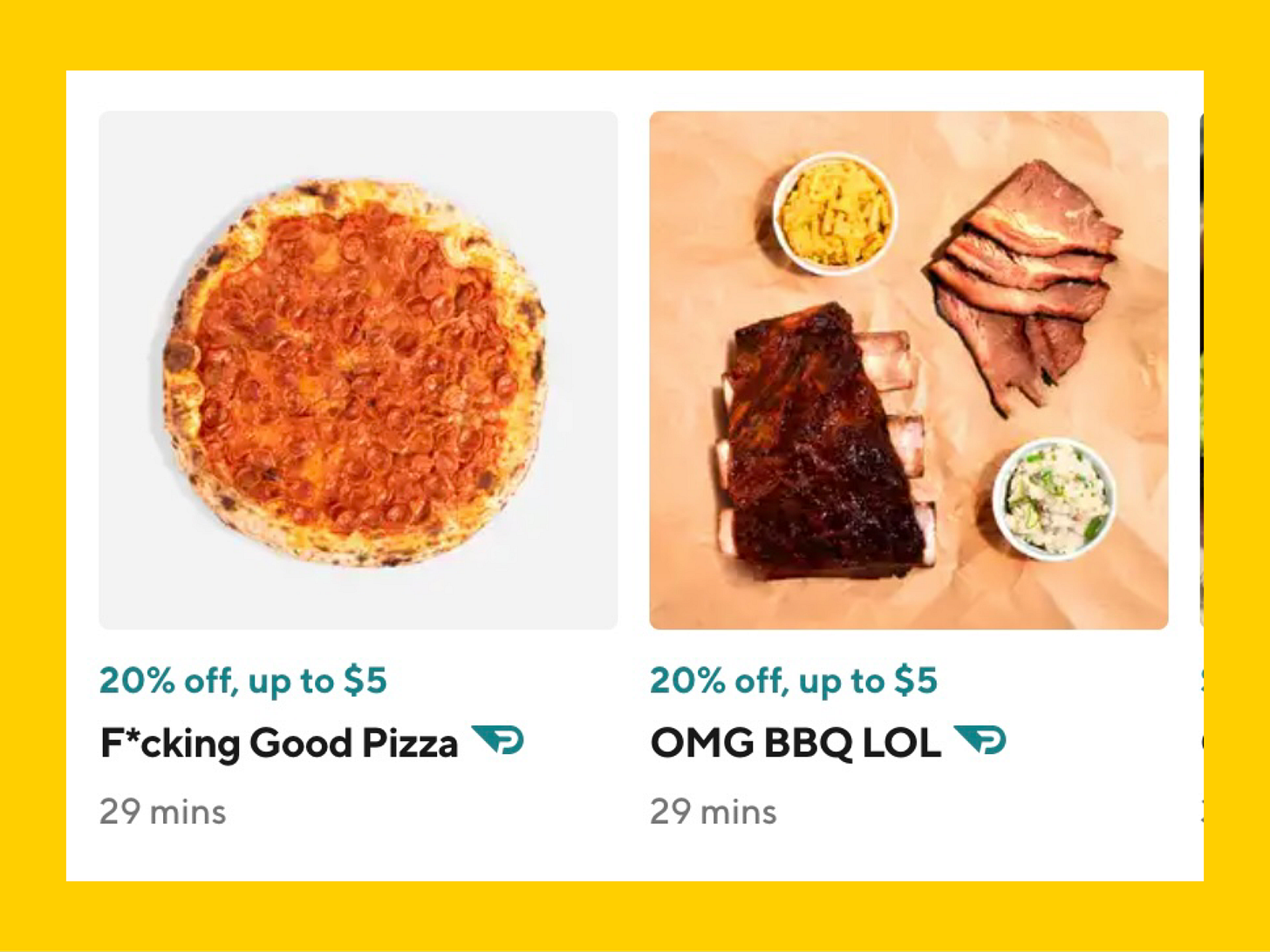While scrolling on Doordash one night last year, co-host Emilie Friedlander made a strange discovery: She stumbled upon a listing for a restaurant called F*cking Good Pizza. Only, as far as she could tell, it didn't seem to actually exist.
The restaurant’s eye-catching name and uncanny photos, with menu items like “F*cking Good Pizzas” and “F*cking Good Sides,” suggested that it had a very specific audience in mind (read: millennial, gen z, and extremely online). But it didn't have a website, and she couldn't track down any concrete information about it. And while the Doordash page listed the same address as a pizzeria she knew in the North Carolina city where she currently resides, she quickly discovered that there were dozens of F*cking Good Pizzas in cities across the country, many of which appeared to share an address with an existing brick-and-mortar restaurant or ghost kitchen.
To make matters even more confusing, some of these locations seemed to be operating as many as ten of these restaurant brands at once. And as she wrote in her recent long read for VICE, “The Mysterious Case of the F*cking Good Pizza,” the names of these establishments—some of which she found in places as far flung as Australia and the United Arab Emirates—could "sometimes seem as though they were engineered expressly to invite online snark": OMG BBQ LOL. Big Hotdog Energy. Send Noods. B*tch Don’t Grill My Cheese.
The piece chronicles her months-long quest to uncover the origin of this particular cluster of clickbait restaurants—a microcosm of the fast-growing trend of virtual restaurants, or online-only brands that prepare food for delivery only. We won’t spoil what she uncovered—we want you to listen to this week’s podcast!—but we'll just say that her research kept leading her back to CloudKitchens, the new company from Uber co-founder and former CEO Travis Kalanick.
Along the way, she spoke to restaurant owners in Philadelphia, Brooklyn, Chicago, and Los Angeles about their experiences cooking for these virtual brands (hint: the pandemic is a major protagonist in this story) and came across an essay by a writer who had fallen down a similar rabbit hole, 3,000 miles away: Emma Kemp, an artist and designer who teaches at the Otis College of Art and Design in L.A.
Published by Bakersfield—the research studio she founded with the filmmaker Matthew Altman Vega—“Ghost ops: Counterfeit Kitchens in the pandemic age” is a fascinating meditation on the systems of social signaling embedded in the design of these virtual brands, the phenomenon’s ties to broader trends in visual culture and advertising, and how its emphasis on "style over substance" can feel very of a piece with what it feels like to live in L.A. in this cultural moment.
On this week's show, Emma and Emilie compare their findings and join Andrea for a conversation on the dizzying world of online-only restaurants, ghost kitchens, and Big Tech’s encroachment upon what we eat.
Follow Emma on Twitter
Follow Bakersfield on Instagram
Check out more of Emma’s work, including a recent essay on the artist Joshua Citarella, via her website
For ongoing coverage of tech in food, visit Matt Newberg’s HNGRY



















Share this post